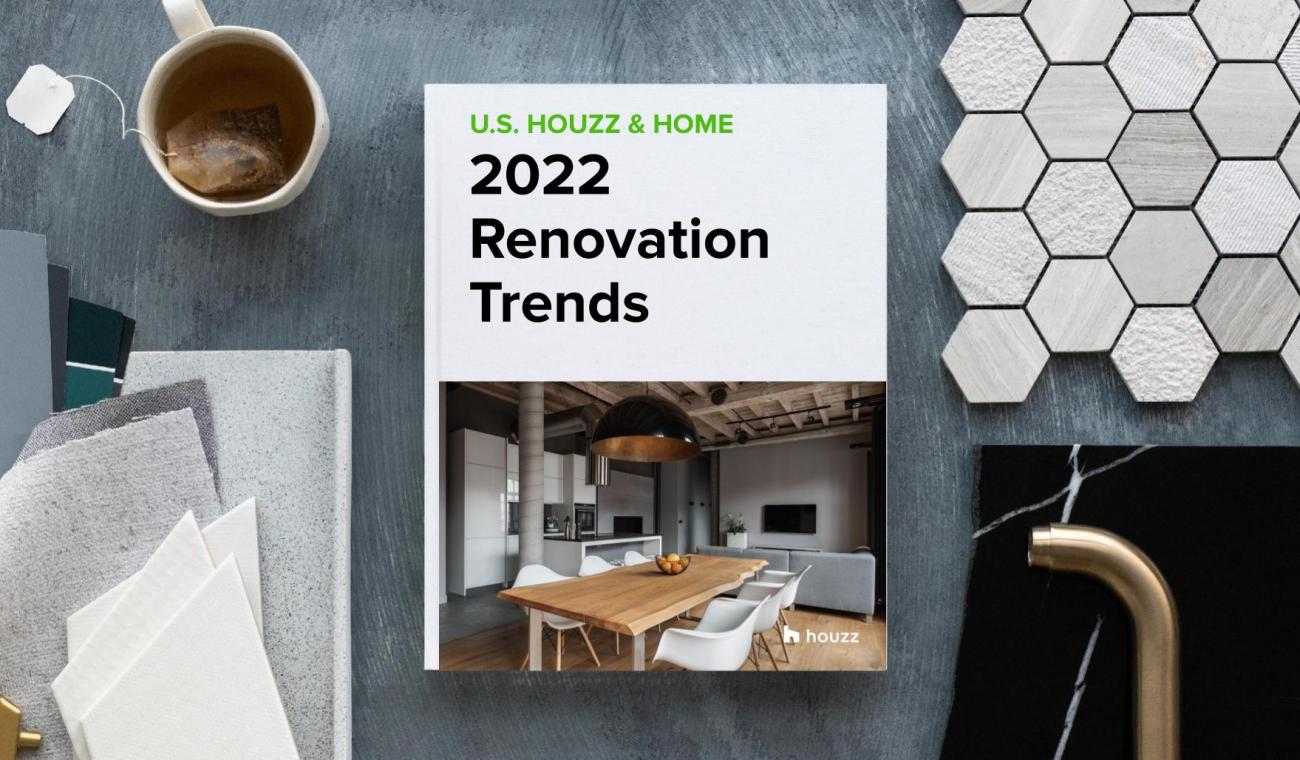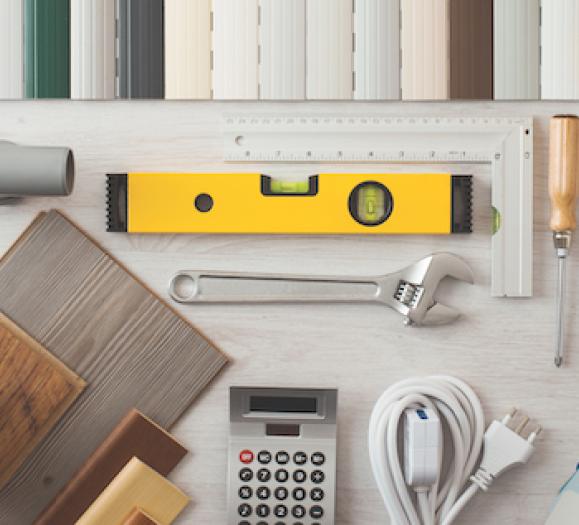Home renovation activity and spend have reached the highest rates reported since 2018, according to the eleventh annual Houzz & Home survey of nearly 70,000 U.S. respondents. More than half of homeowners renovated their homes in 2021 (55 percent), up from 53 percent in 2020 and 54 percent in both 2019 and 2018. Following the 15 percent growth in median spend last year, homeowners report an additional 20 percent jump in median renovation spend at $18,000. This growth can be attributed to homeowners with higher budget projects (the top 10 percent of spend) increasing their investment from $85,000 in 2020 to $100,000 in 2021.
Home renovation activity continues into 2022, with over half of homeowners planning to renovate (55 percent) and nearly half planning to decorate (46 percent) this year. For the first time since 2018, homeowners’ planned spend has increased to $15,000 for 2022 versus $10,000 for the past three years, a 50 percent jump. Additionally, homeowners with higher-budget renovations (the top 10 percent of spend) are planning to spend $75,000 on projects in 2022 compared with $60,000 in 2021.
“Market fundamentals, including limited and aging housing stock, continue to propel the home renovation market,” said Marine Sargsyan, Houzz staff economist. “Homeowners are clearly committed to investing in their homes despite heightened product and material costs driven by supply chain disruptions, and are exploring diverse funding sources. This is especially pronounced among recent homebuyers, who rely heavily on cash from previous home sales to fund their projects and spend significantly more than the national median.”
Recent homebuyers*, who accounted for 10 percent of renovating homeowners in 2021, spent nearly double the national median ($30,000), surpassing short-term** and long-term*** homeowners ($19,000 and $15,000, respectively). Recent homebuyers with higher budget projects (the top 10 percent of spend) invested $175,000 compared to $100,000 invested by short-term homeowners and $90,000 for long-term homeowners. This is likely attributed to the larger scope projects they undertake, averaging three to four rooms, as well as home systems, such as electrical and plumbing.
The share of homeowners relying on cash from savings to fund their renovation projects declined by seven percentage points in 2021 (76 percent), after remaining stable the three years prior (83 percent, each year). In contrast, homeowners financing renovation projects with credit cards gained six percentage points (35 percent). Savings and credit cards hold their ground as the leading forms of payment regardless of homeownership tenure. As expected, recent homebuyers and short term homeowners were more likely to rely on cash from previous home sales (42 and 19 percent, respectively), whereas long term homeowners were more likely to use secured home loans in 2021 (17 percent).
Demand Grows for Home Professionals
More homeowners sought help from professionals for their renovations in 2021 than in the year prior (89 versus 87 percent, respectively). Homeowners relied more heavily on specialty service providers (49 percent) than other professionals for help with projects that required electrical and plumbing expertise. That said, both construction and design-related professionals were hired by a larger share of homeowners in 2021 (38 and 20 percent, respectively) compared with 2020 (36 and 18 percent, respectively). With recent homebuyers tackling more projects than their peers, it’s no surprise that they’re also the most likely to hire professional help (93 percent), compared with short-term and long-term homeowners (88 percent, each).
Investment Rises in Interior Rooms
Median spend increased across nearly all interior room renovations in 2021. Kitchens, which remain the most popular interior room to be upgraded and the room that commands the highest spend, saw an increase in spend of 25 percent compared with 2020 ($15,000 versus $12,000, respectively). Interior rooms that saw the most dramatic increase in spend included guest bathrooms (38 percent), laundry rooms (33 percent), living rooms (33 percent) and guest bedrooms (28 percent).
Securing the Grounds
Renovating homeowners spent a quarter more on home security systems last year. In fact, outdoor security systems are now nearly three times more popular than they were in 2015 and the second most frequently installed outdoor upgrade behind lighting (17 and 22 percent, respectively). Outdoor security system upgrades are most popular among short-term homeowners, followed by recent homebuyers, and long term homeowners (21, 20 and 14 percent, respectively).
* Recent homebuyers are those who have not yet moved into their home or moved in less than a year ago.
** Short-term owners refers to homeowners who moved into their home between one and five years ago.
*** Long-term owners refers to homeowners who moved into their home six or more years ago.







